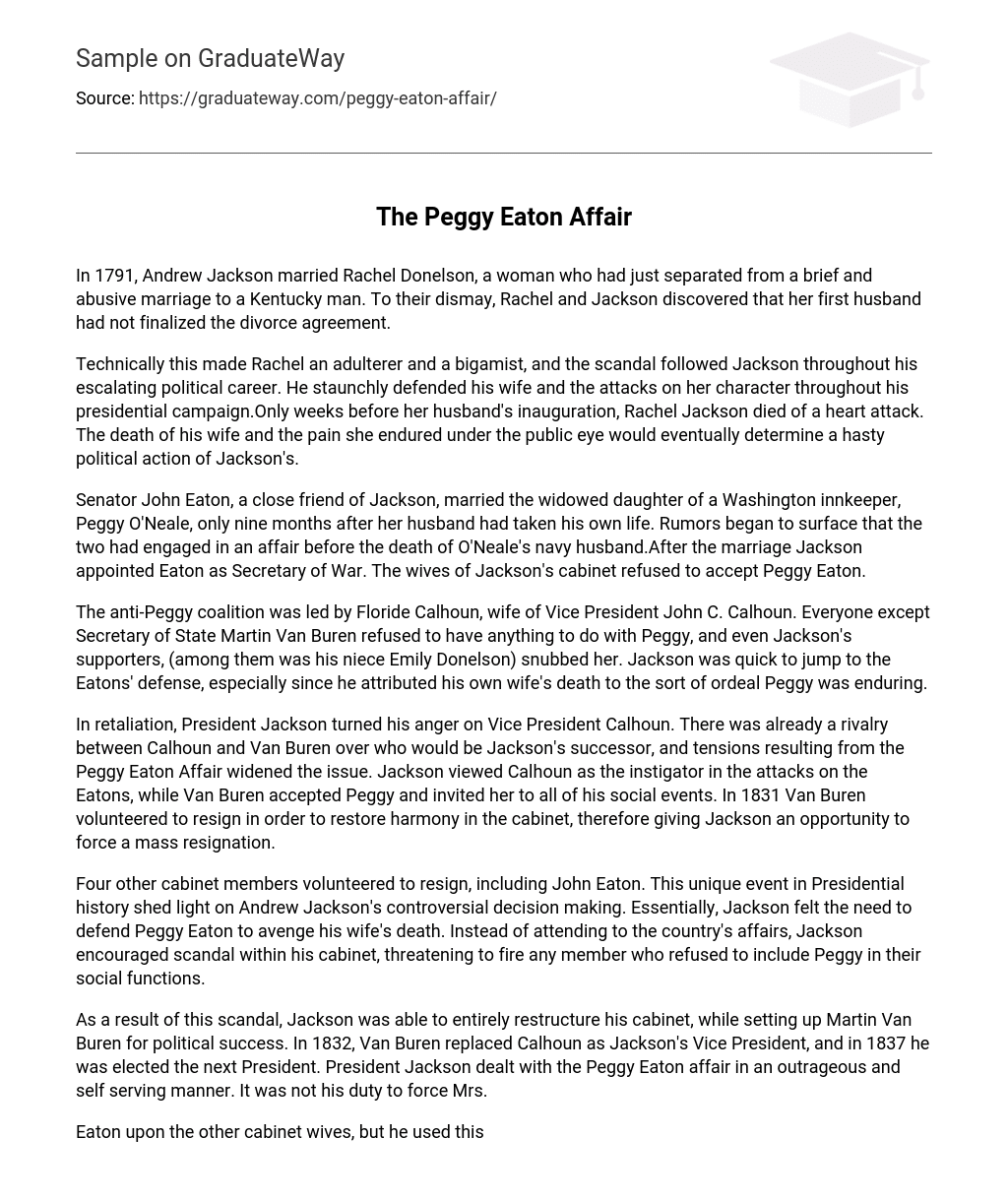Andrew Jackson and Rachel Donelson got married in 1791. Rachel had recently ended a short and abusive marriage to a man from Kentucky. Unfortunately, they found out that her divorce had not been completed.
Technically, Rachel became both an adulterer and a bigamist, leading to a scandal that continued to haunt Jackson as he advanced in his political career. Nevertheless, he fiercely stood by his wife and defended her character during his presidential campaign. Unfortunately, just weeks before his inauguration, Rachel passed away from a heart attack. The sorrowful event and the public scrutiny she endured ultimately influenced Jackson to take swift political action.
Senator John Eaton, a close friend of Jackson, married the widowed daughter of a Washington innkeeper, Peggy O’Neale, only nine months after her husband had taken his own life. Rumors began to surface that the two had engaged in an affair before the death of O’Neale’s navy husband. After the marriage, Jackson appointed Eaton as Secretary of War. However, the wives of Jackson’s cabinet refused to accept Peggy Eaton.
Floride Calhoun, wife of Vice President John C. Calhoun, led the anti-Peggy coalition. Except for Secretary of State Martin Van Buren, everyone avoided any interaction with Peggy. Even Jackson’s supporters, including his niece Emily Donelson, ignored her. Jackson promptly defended the Eatons because he believed Peggy was going through a similar ordeal that resulted in his wife’s death.
President Jackson sought revenge by targeting Vice President Calhoun. Calhoun and Van Buren had already been vying to become Jackson’s successor, and tensions escalated due to the Peggy Eaton Affair. Demonstrating support for Peggy, Van Buren invited her to his social gatherings, while Jackson believed Calhoun was behind the attacks on the Eatons. In 1831, Van Buren offered to step down to reconcile the cabinet and provide Jackson with a chance to initiate a mass resignation.
Four cabinet members, including John Eaton, voluntarily resigned, shedding light on Andrew Jackson’s controversial decision-making in this unprecedented event in Presidential history. Essentially, Jackson, driven by the desire to avenge his wife’s death, felt compelled to defend Peggy Eaton. Rather than focusing on the nation’s affairs, Jackson promoted scandal within his cabinet and warned that any member who refused to include Peggy in their social functions would be fired.
As a consequence of the scandal, Jackson completely rearranged his cabinet and positioned Martin Van Buren for political advancement. In 1832, Van Buren succeeded Calhoun as Jackson’s Vice President, and in 1837, he won the presidential election. President Jackson handled the Peggy Eaton affair in a reprehensible and self-centered manner. It was not his responsibility to coerce Mrs. Eaton.
While pretending to rely on the support of other cabinet wives, Eaton actually used this as a cover to eliminate those who disagreed with him from his own cabinet.





